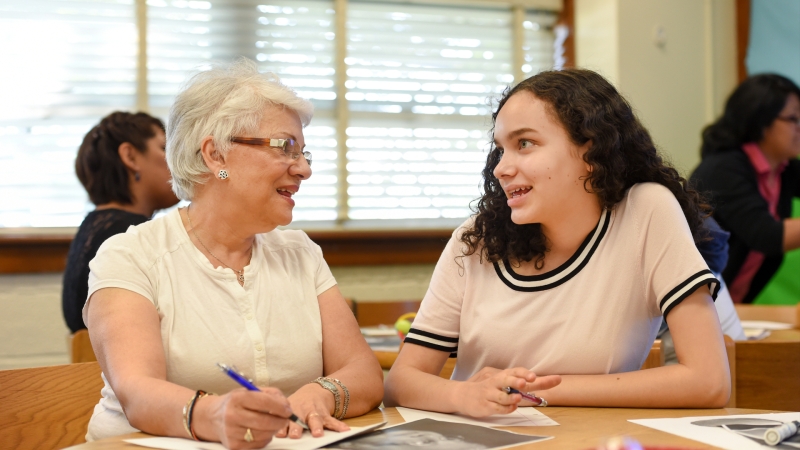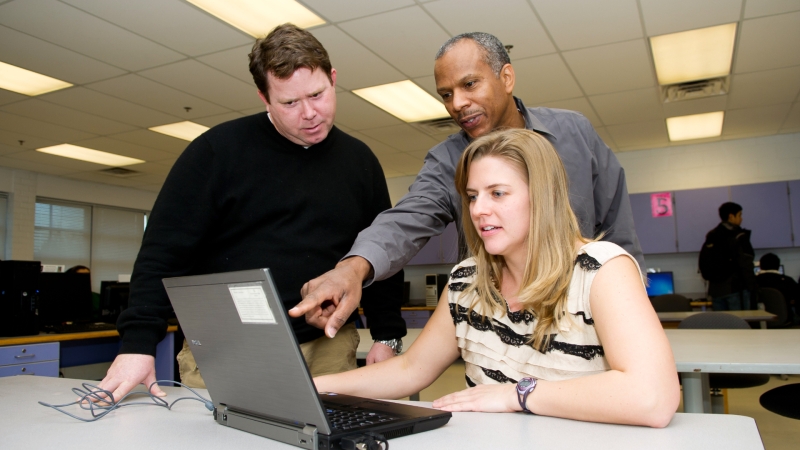
Classroom Supporter - Instructional Coaching
Instructional coaches serve in the role of a classroom supporter when they work inside classrooms to help teachers implement new ideas through demonstration, co-teaching, or observation and feedback.
...[T]eachers who implement a [change in practice] will see greater improvement in student achievement when their teaching practices are close to those specified in research. Consequently, coaches are most effective when they act as critical friends, simultaneously providing support and empowering teachers to see areas where they can improve...By going into the classroom and showing teachers how to implement an intervention, [Instructional Coaches] help teachers obtain a deeper understanding of the intervention in the context where it matters most: their classroom.
- Jim Knight; Instructional Coaching
The Role of a Classroom Supporter:
Classroom supporters work inside classrooms to help teachers implement new ideas. They often demonstrate a lesson, co-teach, or observe and give feedback. As classroom supporters, coaches work to enhance teacher’s efficacy and improve teaching.
- Joellen Killion and Cindy Harrison; Taking the Lead
Here are some way that FCPS Instructional Coaches serve in this role:
- Supporting the implementation of new lessons from the Pacing and Planning Guides.
- Providing classroom-based feedback to the teacher about a goal they are working towards.
Sandra has co-taught with me, modeled lessons, & worked alongside me in my classroom. She is invested in [my students'] learning and is also invested in me. She has worked hard with me & put a lot of time aside (before/after school) to plan with me or coach me. We are able to have reflective conversations after lessons and we challenge each other’s’ thinking as we unpack or plan new lessons. I have become a stronger math teacher because of her. I have more confidence going into the math lesson & have a deeper understanding of the mathematical content.
- Becca D., Teacher, Rose Hill Elementary School

School Leader
Instructional coaches serve in the role of a school leader when they share the school vision, align their professional goals with school and district goals, and share responsibility for the school’s overall success.

Instructional Specialist
Instructional coaches serve in the role of an instructional specialist when they work with teachers to plan for high-yield instructional strategies to use in the classroom with students.

Curriculum Specialist
Instructional coaches serve in the role of a curriculum specialist when they collaborate with teachers to develop an understanding around their curriculum in order to provide the best instruction to their students.

Catalyst for Change
Instructional coaches serve in the role of a catalyst for change when they question the status quo, always seeking to provide the best educational experience for students.

Learning Facilitator
Instructional coaches serve in the role of learning facilitators when they train teachers in new instructional strategies, facilitate whole school professional development opportunities, and support the work of collaborative learning teams.

Data Coach
Instructional coaches serve in the role of a data coach when they analyze data to make informed instructional decisions to meet the needs of all learners.

Staff Mentor
Instructional coaches serve in the role of a mentor as they continue to build trusting relationships with the staff in a school to develop partnerships with all stakeholders.

Learner
Instructional coaches serve in the role of a learner who model continual improvement, reflect on their work by seeking and graciously receiving feedback, experimenti with new ideas, and use what they learn to help all teachers and students achieve.

Resource Provider
Instructional coaches serve in the role of a resource provider when they support teachers in developing the knowledge of available resources, such as curriculum and instructional resources.